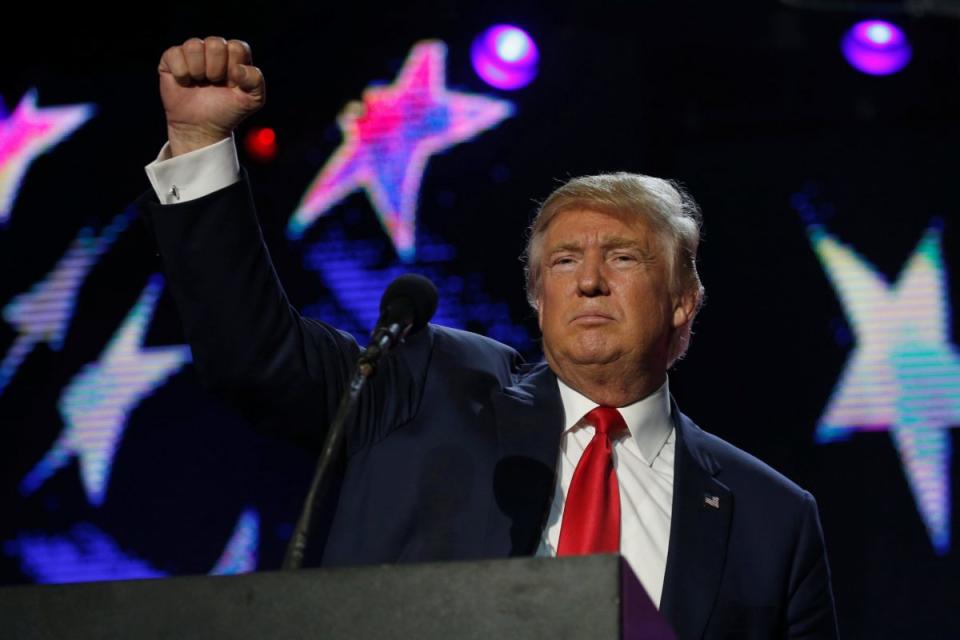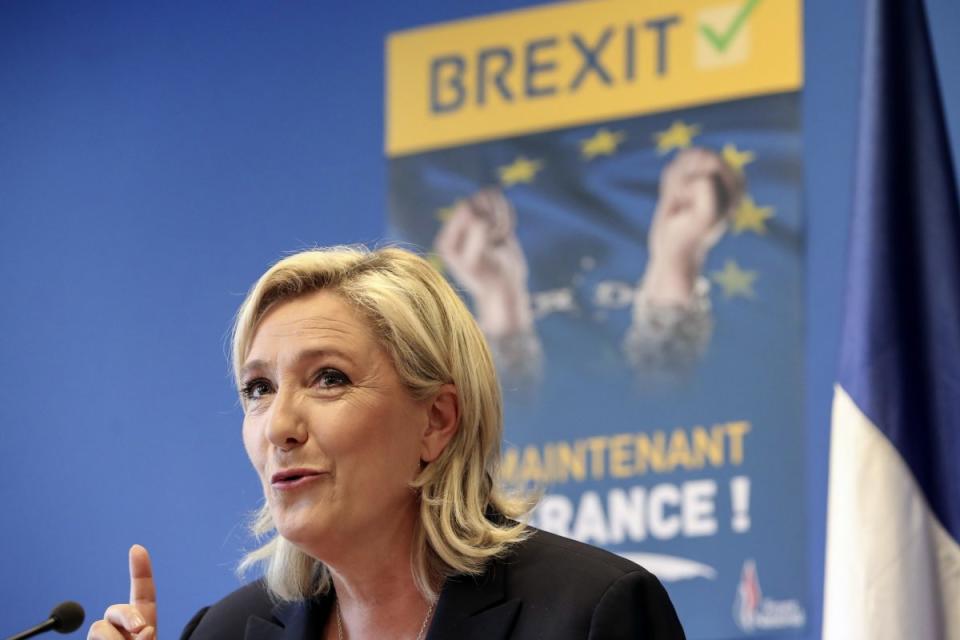Get ready for more 'political entrepreneurs' like Trump

By DJ Peterson, president of Longview Global Advisors
Donald Trump may be down in the polls, but don’t write off the man, the ideas that he is pitching, or his approach to leadership just yet.
The unprecedented nature of the 2016 presidential race isn’t just a hiccup in the electoral process, triggered because the candidate is a well-known and colorful TV reality star – instead, it’s the expression of a deeper, long-term trend of disgruntled voters that began with the Tea Party and Sarah Palin, and will persist long after Trump’s candidacy is over.
It is an electoral movement fed by a toxic stew of chronic national challenges: anemic economic growth, a widening wealth gap, lack of opportunity for the middle class, demographic changes caused by migration and a perception that governing elites are unable or unwilling to address these issues. Add to this caustic mix the emergence of “hyper connectivity” both within and across populations, fueled by social media, online broadcasting and the blogosphere, and you have a situation unlike anything we’ve ever seen before.
Take the wealth issue, as just one example: according to US Census data, the inflation adjusted incomes for 60% of American households have flatlined since the 1960s. In a 2016 survey of 7,000 Americans, GoBankingRates recently found that 69 percent now have less than $1,000 in savings accounts. And one-third have no savings at all.
No wonder so many Americans are on edge.
Putting the 2016 Election in Historical Context
We have a tendency in the US to view our political and economic system as a static entity – in reality, it is a system that is periodically in flux.
Consider this: the current market-oriented system we live in today is only about 35 years old. As a result of the Great Depression, US policy under President Franklin Roosevelt shifted decisively in favor of market interventions, government programs and redistribution of wealth. This movement fell out of fashion with the economic malaise and “stagflation” of the 1970s and early 1980s. President Ronald Reagan then spurred a sea change in policy towards market liberalism characterized by “getting government out of business,” fiscal austerity and cutting taxes, and freeing up the movement of goods, labor and capital – in part to capture the benefits of globalization. That approach still dominates policy in our current Republican-led Congress.
Today, we find ourselves in the midst of another key transition, but this one is even more complex and toxic. Political support for market liberalism has waned thanks to chronic slow growth since the 2008/2009 global financial crisis, combined with job insecurity due to technology, innovation and globalization. There are no easy answers for reigniting sustainable and inclusive growth, and while policymakers fight over the appropriate remedy, voters are becoming increasingly frustrated with the establishment. It is this dynamic which is catalyzing political uncertainty and volatility.

The Rise of the Political Entrepreneur
Our current predicament has created the perfect environment for the rise of “political entrepreneurs” – outsiders who seek to disrupt the status quo by offering simple answers to complex problems, sweetened by a healthy dollop of authoritarian can-do bravado.
A political entrepreneur is an anti-establishment figure with an almost pathological ability to find new ideological or demographic markets which can be accessed and exploited to challenge entrenched interests and the status quo. The term “entrepreneur” doesn’t necessarily mean this person is a business executive; instead, it refers to the entrepreneur’s ability to identify hidden opportunities in the marketplace and use them to gain an edge on the competition. Just as private sector entrepreneurs exploit gaps in the market and find new ways to satisfy market needs, political entrepreneurs do the same thing with voters by taking advantage of volatility, untapped demographic groups, peddling new solutions (often from both the left and the right) and breaking rules. Dramatic, anger-driven insurgencies of political entrepreneurs make compelling narratives for disaffected citizens.
While there are echoes of the political entrepreneur in past American figures like Huey P. Long, George Wallace and Ross Perot, the primary difference today is that hyper connectivity dramatically increases the odds of a fringe candidate gaining enough grassroots support to upset mainstream politics.
This phenomenon is not limited to the US. Political entrepreneurs exist around the world. Consider the recent successes of Marine Le Pen in France, Nigel Farage in Britain, Rodrigo Duterte in the Philippines, and Viktor Orban in Hungary.

Beyond 2016
Authoritarian populism isn’t a one-time blip on the radar. It is driven by chronic underlying economic/societal factors which show no signs of ending any time soon. For this reason, political entrepreneurs like Trump will persist well after the 2016 election – even if Hillary Clinton is elected.
This will have significant consequences. It essentially guarantees that for the foreseeable future, the US political process will be subjected to fringe candidates, disruptive political strategies and shifting alliances.
The Republican Party will have to figure out how to deal with the populist and nativist revolution on its right or else it risks descending into a permanent state infighting and dysfunction. The Democratic Party may soon experience its own ‘Trump moment’ – and it came close with Bernie Sanders and the left. Both parties need to come up with a more compelling platform for the lower middle class without destroying the American economy and pragmatic, consensus-based governance on which it was built.
Business leaders also need to see the bigger picture beyond their quarterly earnings reports and shareholder interests. Without corporate investment and practices that demonstrate a commitment to supporting a strong middle class, the US won’t see sustained and inclusive growth. On the other hand deepening political volatility, risks lower productivity, more regulation, and the demise of open markets.
The bottom line is that we’re at an end of an era and headed for a long, bumpy ride.
DJ Peterson is president of Longview Global Advisors, an advisory firm for Fortune/Global 500s on political, economic and social issues. Peterson previously served as a director for the Eurasia Group and RAND Corporation, and as a senior analyst for Radio Free Europe.

 Yahoo Finance
Yahoo Finance 